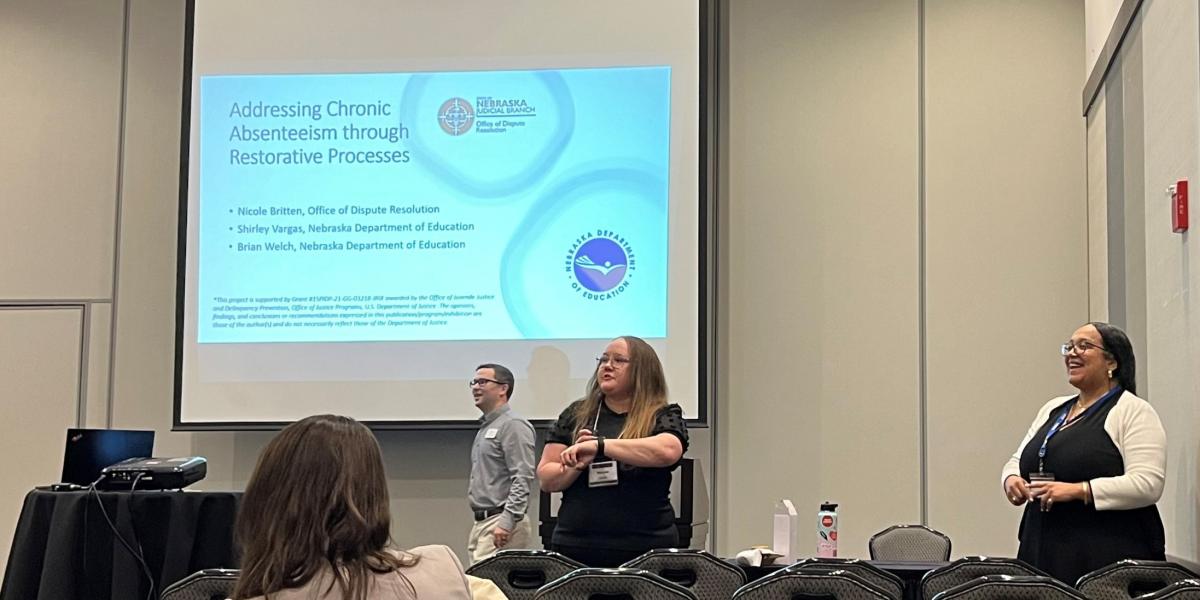Dispute Resolution Teams Up with Department of Ed to Combat Chronic Student Absenteeism
Nicole Britten, Program Specialist for the Office of Dispute Resolution (ODR), presented “Addressing Chronic Absenteeism through Restorative Processes” at the 2024 Nebraska Juvenile Justice Association Conference, along with Shirley Vargas and Brian Welch with the Nebraska Department of Education (NDE). This presentation highlighted the ongoing work of analyzing absenteeism data and exploring Restorative Conferencing as an effective approach to support students in achieving academic success.
The presenters shared the three-tier approach used by NDE to address chronic absenteeism. Restorative conferencing fits within Tier 2, a targeted approach. Within this tier is when community and school barriers are identified and addressed, individualized student success plans are developed, and staff and peer mentors identified. Restorative conferencing, a process that engages school staff, the student, and their family, provides a productive and safe space to collaboratively explore the root causes leading to the absences and develop a plan on how to move forward.
The conferencing process was outlined, and a panel of facilitators and a school principal shared various success stories. In one facilitated conference, it was learned that a female student and her sister were missing school because they recently lost their mother and their father needed help with their infant sibling. The family was connected to resources, such as daycare options and help with applying for financial assistance, such as Medicaid. The school principal noted that it is very common to learn new information about a family that initiates a pivot on how to help the student be successful. Attendees agreed that very rarely is a student absent because they are simply skipping school.
Thanks to a grant through the Department of Justice’s Office of Juvenile Justice and Delinquency Prevention, restorative conferencing to address chronic absenteeism is available to families and schools at no cost, and referrals can be made by anyone at http://nejudicial.com/rjreferral.
A PDF of the presentation is available to view. Addressing Chronic Absenteeism through Restorative Processes

